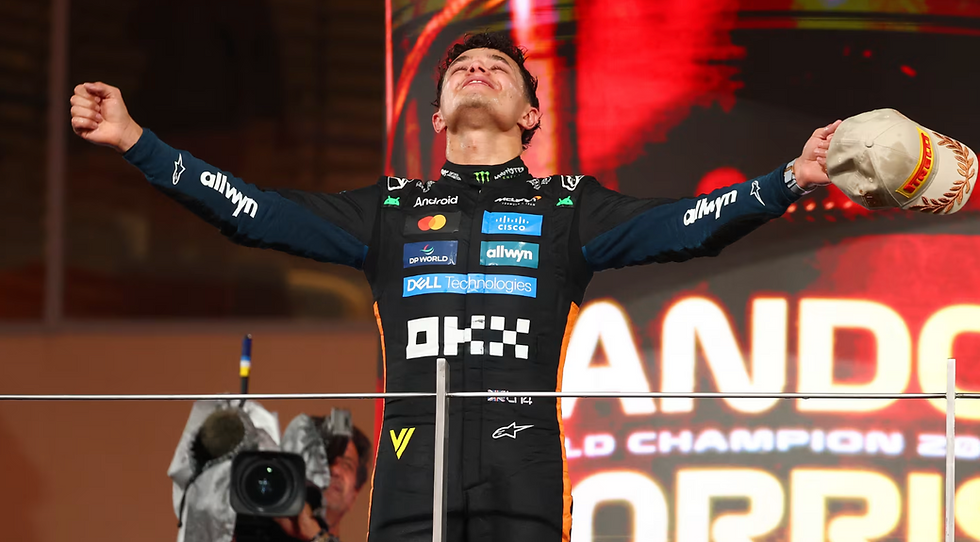Opinion: Formula One politics are ruining the sport
- Gabriel Tsui

- Sep 16, 2022
- 4 min read
Updated: Jan 5
Written by Gabriel Tsui, Edited by Vyas Ponnuri

Formula One is far from being merely pure racing, and simply a sport. A lot of “politics” are starting to get involved in the sport, and everyone is trying to fulfill their own agenda. However, it is important to understand what is politics in Formula One with the help of a suitable definition, to set the theme for the article. Formula One politics are activities related to influencing the actions and development of a team/personnel, or obtaining and retaining power in a team/personnel. In simple terms, doing something to make your team more advantageous, or make a rival lose advantage. While not all politics are bad for the sport, most of everyone’s own agenda is starting to harm the sport, slowly, for the present or future. By listing some recent incidents, I wish to state a few reasons why politics are harmful to the sport.
Let’s start with an incident from not too long ago: The contractual dilemma between Daniel Ricciardo, McLaren and Piastri. According to the Contract Recognition Board’s (CRB) verdict on the Piastri contract case, McLaren had signed Oscar Piastri on the 4th of July itself. However, in an interview with Sky Sports on September 2nd, Ricciardo revealed that he never knew of Piastri having signed a contract with McLaren, when he posted the Instagram story stating he will drive out his contract on July 13th. These conflicting timelines lead us to a few conclusions: 1) Contrary to statements, McLaren have not been transparent to Ricciardo; 2) Ricciardo intended to drive out his contract; and 3) McLaren intended to use the signing of Piastri as leverage to pressure Ricciardo to opt out of his contract for 2023. While Ricciardo has not yet announced his future, this sets up for another driver possibly kicked out due to performing under expectations. It’s not just Ricciardo. A plethora of drivers such as Danil Kvyat, Nico Hülkenberg, Stoffel Vandoorne, and Robert Kubica are all prime examples for how harsh the sport is. It will inevitably build a barrier between young drivers and F1, with the growth in harshness of standards for these young drivers.
Another recent incident is regarding the flexi-floor, speculated to be used by Ferrari and Red Bull Racing. The non-stop soap opera between Christian Horner and Toto Wolff is certainly enjoyable, and has entertained the Formula 1 meme community for weeks. With Wolff claiming that Ferrari and Red Bull have been using flexi-floors that do not comply with the technical rules, Ferrari admittedly has to redesign their floor to comply with the new Technical Directive (TD). What the FIA fails to realise is that, if these flexi-floors are real, it has solved Ferrari and Red Bull’s issues regarding porpoising. But Wolff, for his personal gains, decides to oppose his rivals. Wolff first questioned whether porpoising could harm the driver's health, yet rejected methods that could potentially reduce porpoising, just to keep his team in contention for the championship. The amount of political drama just for their own personal gains is unbelievable, going as far as contradicting themselves, and possibly even harming the drivers of their rivals.
Let’s keep going with the flexi-debacle. In the past season, both Red Bull and Mercedes have been heavily criticising each other, claiming of the other team using rear wings that can flex in a way so as to bend down at high speeds to lower drag, and bend back up at lower speeds to create more downforce. A typical championship rivals PR battle, not so much of a problem looking on the surface. However, when you look at both teams' car cameras with depth, they both actually use the flexi-wings. The amount of double standards on show was insurmountable, and FIA naturally banned any innovation capable of making the cars faster. Now, F1 is a sport that encourages innovation. If teams can’t innovate to make faster cars, or attack other teams’ innovation due to their incompetence, what’s the point of developing cars? Let’s just give the drivers the same car and let them battle it out. Innovation and creativity makes wonders. Brawn GP, one of the fairy tales of F1, was based on the creation of the double diffuser. Sadly, F1 politics unconsciously lead to less and less creativity. With teams wary of the cost cap, they would be reluctant to develop parts that could possibly be banned, and this could ultimately lead to the sport’s downfall.
Formula One politics as a whole isn’t entirely terrible. Pointing out cheaters and leading investigations such as Crashgate, Spygate, Ferrari 2019 engine etc. is a good political move to make the sport fair. However, FIA’s willingness to artificially level the playing field for ratings will inevitably harm future developments, and the amount of future F1 prospects. Moreover, teams are willing to go to any lengths to gain an advantage over their rivals, and drivers’ health will be the first sacrifice for better performance. F1 has to change for the better, and it has to be now.







Comments